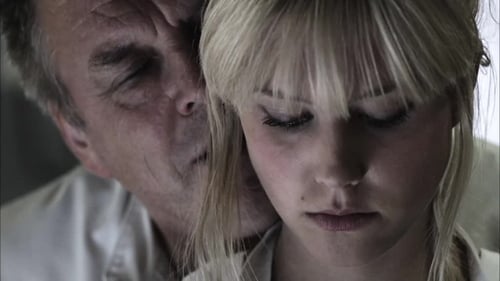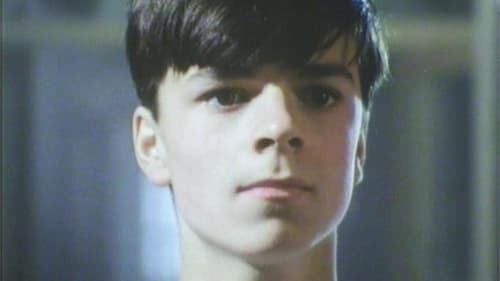Titus Muizelaar
Nacimiento : 1949-05-08, Amsterdam, Noord-Holland, Netherlands

Butcher
A young woman is awakened to a world of cruelty, shadowy passions and sensuality.

Man
An impressionistic experimental drama. A woman walks a fine line between sanity and madness in a world of constant twilight. She works at a filling station and lives a life of emotional isolation. No one seems to pay attention to her, and she lives in a run-down flat that looks as if it's decaying before our eyes. As the woman wrestles with the demons that are taking hold within her mind, she frequently confronts herself in the mirror, often while naked.

Leon Mortier
Leon Mortier, a wealthy publisher, whilst driving through the forest one day, stops when he sees Lulu walking down the long narrow road. She gets into the car. Leon is amused and intrigued by her. When he pulls off, suddenly out of nowhere a man appears in front of the car and Leon accidentally hits him. He decides to take them both home to recover. Leon falls madly in love with Lulu. Both Lulu and the man stay on with him in the house. Lulu's behavior is unpredictable. Leon becomes suspicious and paranoid about her. As he begins to suspect that his friends are being unfaithful with Lulu, he decides to throw a dinner party with some of his closest friends. During the dinner he wants to confront them with their infidelity and expel them all from his life with Lulu. But when he discovers his son in the arms of Lulu, he decides also to get rid of her, a plan which backfires in a most unexpected way.

On Stage is a fake documentary about a promising five-headed cabaret company at the Cabaret Academy, who after their graduation are signed up by an impresario. The latter wants to launch them as real stars, but the troupe appears to be less close-knit than expected, when machinations and mutual competition drive the friends apart and one person is even victimised. The actors really graduated from the Academy in 2003.

van Marlo
For all Frits, a farmer's son, knows, his mother died when giving birth to him. He and his father make up a strong team. In the literal and figurative sense, because his father not only teaches him to milk the cows and hunt, he is also the coach of his soccer team. The happy tide turns when the boy turns eighteen and is scouted as a promising soccer talent. Suddenly, Frits's future is no longer with his father on the farm, but on the green grass of the Nijmegen soccer club NEC. His son's splendid soccer career may be the crowning glory of the farmer's hard work, but he is afraid he will also lose his only child. Desperate, he reveals the lie with which he raised his son. Frits is bewildered and makes a dramatic decision.

Stratenmaker
The story of a summer dress and those who have to do with it, especially the train conductor (played by van Warmerdam, the director). The dress functions as catalyst for the whimsical events, which turns out to be either tragic or hilarious.

Phys. Ed. Teacher
In this short motion picture, schoolboy Kees is intelligent, introvert and sensitive, but gets ridiculed verbally and physically at an all-boys school by mindlessly cocky class mates and even insensitive teachers, especially in gym, where his physical weakness is mercilessly abused to make him a defenceless laughing stock in front of his smirking peers. His awakening sexual interest goes to boys, and in particular to Charel, a beautiful athletic classmate who probably feels an undetermined interest but would never risk admitting (possibly not even to himself) having any gay or bi appreciation, least of all for a 'sissy', and thus remains unresponsive to shy Kees' overtures. When the hunk finally comes over to Kees' place while his parents are away, a desperate disappointment with a tragical twist is in the making…

A bus driver on a regular route in the 'polder' moves into a new house with his wife. They are the first inhabitants of a new estate. At the same time, a homeless man and an woman movie into the driver's bus.

Clemens
Frans van de Staak, Holland's most prominent avant-garde director, made this film "...about people who want to get something done. I leave out the why as well as the results. What's left is the moment of endeavour.
There are two couples. The four characters are played by eight actors. There is little dialogue. Sometimes a couple does not seem to live together, just to be alive together in the same room. Each one of them at one time walks through an anymous part of Amsterdam. They put their feet down with a will, clicking their way through town. We do not know where or why they are going. To a meeting, to get some exercise, nowhere?
They have difficulty in communicating. They leave notes to each other on the table rather than talk.
The film sometimes mocks their intensity. It is surprising that such a strange film can keep the viewer's attention for an hour and a quarter. But it certainly does. (Dutch Fim 1988-89)

Johan
Two very different friends who share an apartment in Amsterdam have reached a dead end in their lives. The arrival of a parcel looks like an opportunity for a change.

Sakko
Dutch television film by Thomas Brasch.

Produced by De Appel, Amsterdam, while General Idea was in residence there, Test Tube was conceived as a program for television. Presented under the brand "The Color Bar Lounge," a cocktail bar in the mythical 1984 Miss General Idea Pavilion, the program is a hybrid of popular television formats […] and infomercial. […] Advertisements for the bar are placed throughout the program; a loaded word choice, full of double-entendres and innuendo, betrays the influence of both Dadaism and consumerism. This collapse of popular and high culture is central to General Idea's agenda, as Felix Partz observes: "You know, the mass media are like a vast pharmaceutical complex developing new cultural elixirs of an unprecedented intoxication…but art remains a curious and elitist drink. Despite its unique flavor and heady cultural properties, it has never effectively been exploited."









